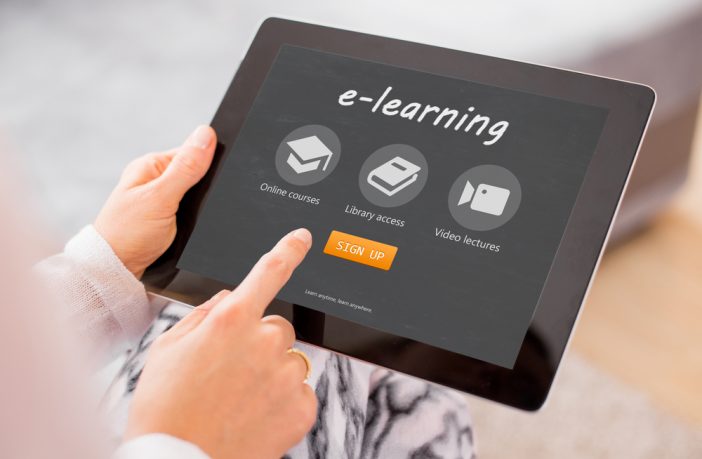Education – we value it as a measure of achievement and success. It encourages social mobility and provides us with the skills to develop, both personally and professionally. But is our education system outdated? CEO of the online social learning platform, FutureLearn, Simon Nelson, explores the power of online learning in transforming education.

CEO of FutureLearn, Simon Nelson
Online learning platforms have always talked big because the opportunity to transform education is big, and the need to transform education is huge. There is global demand for education which is not being met by the traditional higher education system and, arguably, cannot be met by the traditional higher education system without radical transformation; just in terms of infrastructure alone the number of schools and universities that would need to be built to meet this demand is unfeasible. Online is an essential part of the solution.
“A lot of online learning is inaccessible in parts of the world”
Of course online learning platforms were never going to reform education overnight; the claims that universities would become irrelevant were ludicrous. The truth is that a lot of online learning is still inaccessible in parts of the world, it still has a high price tag, and for many people, the traditional university pathway is still absolutely fit for purpose. However, we can’t forget that the advent of Massive Open Online Courses (MOOCs) allows millions of people to access world-class learning with no cost.
The promise of online learning is still very real. At FutureLearn, we have reached over 8 million learners, the majority of which are outside of the UK. They are learning to speak English, advancing their careers with CPD accredited online courses, and improving their business skills with leadership and finance courses from leading players in the market – universities as well as institutions – and the vast majority are learning for free.
Breaking down the barriers to Higher Education
With our most innovative academic partners from around the world, we are transforming what it means to study for a degree and in doing so are breaking down barriers to provide unprecedented levels of accessibility and flexibility.
A learner from anywhere in the world can now study for a degree from a university on the other side of the world – Deakin University, Coventry University, The Open University, Murdoch University – all on their mobile phone.
Bridging the gap through online learning
It’s true that there is work to be done on the affordability of online learning, in particular degrees, and to truly transform access to education, university partners will need to create a product which is affordable whilst maintaining its credibility and effectiveness. The demand and the impetus are there but there is no single university which can currently address this; online learning platforms exist to bridge this gap.
Whilst historically MOOCs have sat within the university sector, the role online learning platforms is playing in government schemes is often overlooked. For example, FutureLearn is the common platform underpinning the Institute of Coding, a collaboration between the UK Government, more than 60 universities, big players in the tech industry, SMEs, industry groups, experts in non-traditional learning and professional bodies. Together, we are aiming to strengthen the UK’s position globally in computing and IT, address the UK digital skills gap and create opportunities for more computer science graduates.
“Developing the skills to succeed in the digital future”
There is a huge skills gap that exists more generally across the UK; there is a divide between the knowledge gained by students at school and university, the skills employers want, and the skills our economy needs to succeed in the digital future. FutureLearn’s scalable, high quality platform provides the pathway to help both universities, learners and employers bridge this gap. For example, Accenture has run a suite of digital skills courses on our platform developed by experts across their organisation. The free courses aim to provide those who are looking to upskill or retrain, the skills they need to thrive in the digital workplace.
Widening access to valuable transferable skills
FutureLearn’s focus is far wider than the UK; we believe that there is also great power in online learning when it comes to opening up access to education in developing nations and as a cross-industry partner we are able to have a far greater impact. For example, through PADILEIA (Partnership for Digital Learning and Increased Access), which has five years’ funding through the SPHEIR (Strategic Partnerships for Higher Education Innovation and Reform) initiative, we are providing Syrian refugees with learning and certification to give them routes into higher education or valuable transferable skills.
Online – the inevitable future of education
It is inevitable that the future of education will be more and more online. The promise of online learning is not that universities will be made irrelevant but that through innovative, ambitious partnerships, universities can transform themselves to meet the demands and needs of a changing world. Online and campus-based learning should not dismiss one another – there is a lot to learn together and the opportunity is too great to ignore.
Follow The Open University Future of Education campaign on social media with #TomorrowsEd



